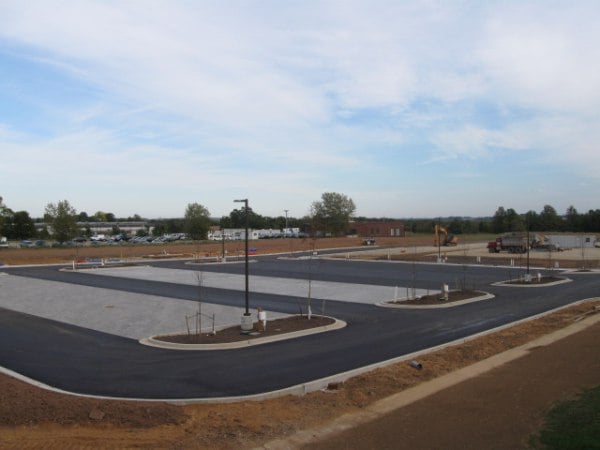The topic written about in this post is the effects of runoff water to the water supply and the “Eco-Friendly” permeable pavements. The article may be too technical for some but may be engaging for the engineering type.
The main focus of the article is to see how permeable pavements are an effective way to keep the rain water controlled. At this site they used permeable pavers, permeable asphalt, and permeable concrete. The expert contacted was Amy Rowe of the US EPA. She has a PHD and is monitoring a site in New Jersey which they are using to see the benefits. The site that is used is the EPA employee parking lot at the office in Edison which is shown below. To see the EPA's information click here.
The original article where the idea came from for this post is called “US EPA Tests Permeable Pavements” in the Interlocking Concrete Pavement Magazine which is a publication of the Interlocking Concrete Pavement Institute. At the site they will be monitoring runoff flows. Changes in the water table level will be measured to see the positive impacts of groundwater recharge. Amy said that these results will be long in coming because the water table under this site is a long way down.
The article stated that many cities in the U.S. are serviced by combined sanitary and storm sewer systems. The sewage treatment plants can’t always process the combined flows therefore raw sewage is discharged into rivers and lakes damaging water supplies and ruining recreational areas.
The Permeable Pavements will decrease the amount of runoff. A publication from paver manufacturer, Techo-Bloc, says that the EPA estimates that 70% of pollutants in surface water come from storm water. 
The results of this is what the EPA is measuring along with the water quality data such as “total suspended solids, pathogens, nutrients (nitrogen and phosphorous forms), metals (Cadmium, chromium, copper, zinc, lead) as well as organic carbons (From oils and grease).” The article claims that this “project is the most comprehensive and significant due to its unique design and comprehensive approach to long-term data collection and analysis. As the years go by we look forward to seeing the results from this project and many more.

Related Articles:
Advancements in Permeable Pavements
Rainwater Harvesting Systems